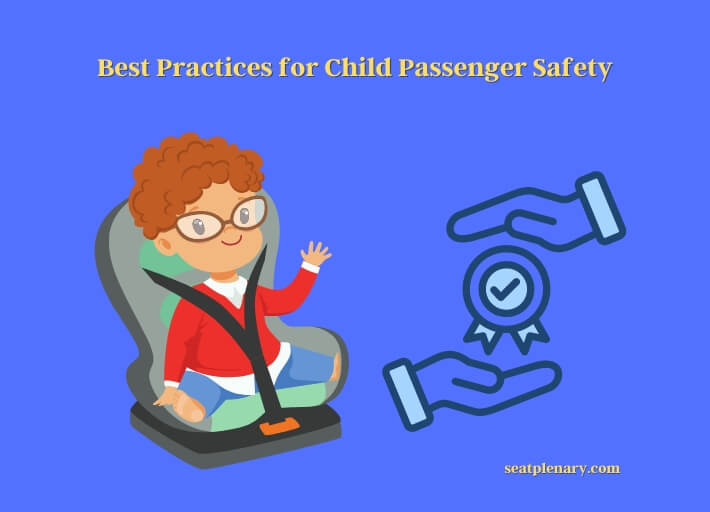The safety of our children is paramount. From the moment they’re born, we strive to protect them from all potential harm. A key aspect of this protection, often overlooked, is ensuring they’re safe while traveling in a vehicle. Every year, countless young lives are saved due to the correct use of child safety seats.

Each state in the U.S. has different laws governing the use of car seats. In this article, we’ll delve into the specifics of South Carolina’s car seat laws (here is north Carolina’s car seat laws) to ensure that you have all the knowledge necessary to keep your children safe on the road.
The Specifics of South Carolina Car Seat Laws
South Carolina’s car seat laws are designed to ensure the safety of children at every age and stage of development. Let’s break it down by age group:
Birth to 2 Years: Rear-Facing Car Seats
Appropriate Seat Types
For newborns and children up to the age of two, South Carolina law requires the use of a rear-facing car seat. These seats, designed to support a child’s head, neck, and spine, are crucial for protecting your child in the event of a collision.
Installation Tips
The car seat should be installed in the back seat of the vehicle and must be secured according to the manufacturer’s instructions. It’s essential to ensure that the car seat is correctly installed and doesn’t move more than one inch in any direction.
Ages 2 to 4: Forward-Facing Car Seats
Choosing the Right Seat
Once a child outgrows their rear-facing seat, usually around their second birthday, they should transition to a forward-facing car seat. This type of seat is equipped with a harness to secure the child and should be used until the child exceeds the seat’s maximum height or weight limit.
Proper Use and Installation
Like the rear-facing seats, forward-facing car seats should be installed according to the manufacturer’s instructions in the back seat of the vehicle. The harness straps should be snug and lie flat without any twists.
Ages 4 to 8: Booster Seats
The Right Time to Transition
Children between the ages of 4 and 8, who have outgrown their forward-facing seats, should transition to a booster seat. Booster seats elevate children to ensure that the car’s seat belt fits them correctly, increasing their safety in case of a collision.
High-Back vs. Backless Booster Seats
High-back booster seats are recommended for vehicles without headrests, while backless booster seats can be used in cars with headrests. The most important thing is that the seat belt should lie across the child’s upper thighs and not the stomach, and the shoulder belt should fit snugly across the chest and not the neck.
Ages 8 and Above Seat Belts
Determining Seat Belt Readiness
Children can transition from a booster seat to seat belts alone once they are tall enough that the seat belt fits them correctly. Generally, this is when they reach a height of 4 feet 9 inches.
Proper Seat Belt Fit and Usage
The lap belt should be low and snug across the upper thighs, and the shoulder belt should cross the chest and shoulder, not cutting into the neck or face. Children are safest in the back seat and should remain there until at least age 13.
Exceptions to the Rule
Medical Exceptions
There may be certain circumstances where a medical condition prevents a child from using a traditional car seat. In these cases, parents should consult with their child’s doctor to find an appropriate solution that aligns with South Carolina law.
Emergency Situations
In emergency situations, exceptions may be granted to the car seat laws. These cases are rare and the ultimate goal should always be the child’s safety.
Travel and Ride-Share Services
Travel and ride-share services can present unique challenges for complying with car seat laws. It’s important to remember that safety should never be compromised, and planning should be made to ensure appropriate car seats or booster seats are used.
Penalties for Non-Compliance
Legal Consequences
Failure to comply with South Carolina’s car seat laws can lead to fines and points against your driver’s license. The goal of these penalties is not punishment, but rather to encourage compliance and ensure child safety.
Impact on Insurance Rates
Repeated non-compliance can also have financial repercussions beyond legal fines, potentially resulting in increased car insurance rates.
Resources for Parents and Caregivers
Where to Get Car Seats Inspected
Many local police and fire departments in South Carolina offer free car seat inspections. These professionals can ensure your car seat is installed correctly and provide guidance on proper usage.
South Carolina Car Seat Exchange Programs
Several organizations in South Carolina operate car seat exchange programs, which allow parents to exchange outgrown car seats for the next size up at a reduced cost.
Online Resources and Support
Websites such as the National Highway Traffic Safety Administration (NHTSA) and Safe Kids Worldwide offer abundant resources for parents seeking further information about car seat safety.
Beyond the Law: Best Practices for Child Passenger Safety
Additional Safety Measures
While complying with the law is essential, parents should also consider additional safety measures, such as avoiding distracted driving and adhering to speed limits.

Recommendations from Safety Experts
Safety experts recommend keeping children in each stage of the car seat for as long as possible before moving to the next stage, as this offers the best protection.
Future Outlook: South Carolina’s Car Seat Laws
Recent Changes to the Law
It’s crucial for parents to stay updated with any changes to car seat laws. South Carolina last updated its laws in 2017, increasing the age for rear-facing seats from one to two years.
Possible Future Amendments
While there are no known upcoming amendments to South Carolina’s car seat laws, changes could occur as new research and safety information become available.
Locations for Car Seat Assistance in North Carolina
In South Carolina, there are several locations where parents and caregivers can get assistance with car seat safety.
Safe Kids South Carolina Stations are run by the global non-profit Safe Kids Worldwide and provide invaluable resources, events, and programs for car seat safety. The CPS Technician Search tool is another useful resource, as it allows users to find certified Child Passenger Safety Technicians who can check car seat installations and provide guidance.
The National Highway Traffic Safety Administration (NHTSA) also runs a car seat inspection center where experts ensure car seats are correctly installed. Safe Kids Upstate is another notable location where parents can go for assistance.
In Sumter, there’s a Car Seat Installation program, and the City of Greer also offers car seat inspections. The Mt. Pleasant Fire Department can be reached at (843) 884-0623 for car seat help, as can the City of North Charleston Police Department which specializes in child safety seat installations.
The City of Myrtle Beach Fire Department offers car seat installation assistance, as does the Spartanburg Regional Healthcare System with their Car Seat Inspection service.
Cherokee County Department of Social Services (DSS) provides child seat safety resources, and the Westview-Fairforest Fire Department offers a Car Seat Fitting service.
For residents in Summerville, the fire department has a Car Seat Program. Last but not least, St. John’s Fire District’s Stephen Mantie can be reached at 843-559-9194 ext 218 and offers a free car seat exchange program for recalled, out-of-date, or inoperable car seats.
Informative Videos on Car Seat Safety for South Carolina
Car Seats Save Lives
Child Passenger Safety – 5 Step Test
How to secure your car seat
Cincinnati Children’s How to Install a Car Seat
Car seat check: An easy guide to safe car seat installation and use
Summary
In this comprehensive guide, we have navigated the landscape of South Carolina’s car seat laws. The state’s regulations prioritize child safety, mandating the use of appropriate child restraint systems based on age, height, and weight.
From birth to 2 years, children should be in rear-facing car seats that provide the best support for their delicate necks, head, and spine. As children grow, transitioning from a rear-facing car seat to a forward-facing one becomes necessary. This usually happens around their second birthday, continuing until they outgrow the seat’s maximum limits.
Once a child has outgrown their forward-facing seat, typically between the ages of 4 and 8, they should use a booster seat. Booster seats help position the child so that the seat belt fits correctly. This transitional phase lasts until the child is tall enough (usually at 4 feet 9 inches) for a seat belt to fit properly without the need for a booster seat.
While these laws serve as a necessary framework, we highlighted that it’s also important to consider the child’s size and maturity, in addition to their age, when deciding on the appropriate car seat. South Carolina’s car seat laws accommodate exceptions in special cases, such as certain medical conditions and emergencies, emphasizing the importance of a case-by-case assessment for safety.
We also discussed the penalties for non-compliance with South Carolina’s car seat laws, which can include fines and points against your driver’s license. Repeated violations may lead to an increase in car insurance rates, adding further financial implications to legal non-compliance.
The importance of ensuring car seats are correctly installed was underscored, along with available resources in South Carolina for car seat inspections. Programs that facilitate car seat exchanges were also highlighted, providing options for families to obtain suitable car seats as their children grow.
Finally, we emphasized the importance of staying informed about changes to car seat laws and adopting best practices beyond what’s legally required, such as keeping children in the rear seat until age 13. In doing so, we can all play our part in protecting children and promoting safety on South Carolina’s roads.
Frequently Asked Questions
What happens if I’m visiting South Carolina? Do the same laws apply to me?
Yes, all motorists in South Carolina, including visitors, must comply with the state’s car seat laws.
Can my child sit in the front seat in South Carolina?
South Carolina law does not specify a minimum age for front-seat passengers, but it’s recommended that children under 13 years of age remain in the back seat for their safety.
Is Car Seat Replacement Covered by Car Insurance According to South Carolina Car Seat Laws (2023)?
In compliance with South Carolina Car Seat Laws (2023), car seat replacement due to an accident is generally covered by car insurance. It’s essential to understand the specific coverage provided by your policy regarding car insurance and car seats. Familiarize yourself with the details to ensure you receive the necessary support if you encounter such situations.
What do I do if my child has outgrown their car seat but isn’t tall enough for a seat belt?
In this situation, your child should use a booster seat, which can help position the seat belt correctly for their size. Booster seats are designed for children who have outgrown car seats but are not yet tall enough for the seat belt to fit properly.
How can I be sure that my car seat is installed correctly?
You can have your car seat inspected for free at many local fire stations, police departments, and hospitals. Certified professionals can ensure the seat is installed correctly and teach you how to do it yourself for future reference.
Staying informed about the latest car seat laws in South Carolina is not just a legal requirement but a necessary step to ensure your child’s safety. By understanding these laws, and the reasoning behind them, you’ll be better equipped to protect your little ones every time they join you on a journey. So, buckle up and drive safely, knowing that you are doing your best for your child’s well-being.
You May Like These Resources:
